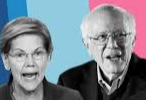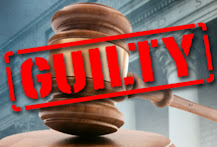President
Biden laid out his ambitious agenda in a generally well-received speech to a pared down, socially distant
joint session of Congress on April 28. The president apparently has the
wind at his back in terms of public support for the measures he’s proposing.
Polling indicates voters, including many Republicans, back Biden’s proposals.
That does not mean he has Republican support in Congress. If much of his program becomes law, it will happen because
Democrats unify and pass
financially related matters through budget
reconciliation. The fate of voting rights and police reform measures, to which
reconciliation doesn’t apply, remains doubtful.
Though all three of us count ourselves as supporters of the
president and his administration, we don’t have a unified view of all Biden’s
proposals. The differences are sometimes
subtle and can turn on political calculations, not substantive policy views:
Henry: All In 
Biden’s overarching themes hold great
appeal for me. I particularly like the fact he has cast his program in terms of
creating opportunity out of crisis. The United States still faces the pandemic and the economic
fallout it created, not to mention potentially existential
threats in
climate change and
systemic
racism. As Republicans
increasingly claim systemic racism
doesn’t exist, Biden and other progressives must push for changes in policing
and attack economic inequality. These difficult issues offer an opportunity for
much needed solutions we’ve put off long enough.
Biden has also struck a chord with me
by emphasizing that his plans address the nation’s
need for reality and hope. That
means legislation and an administrative approach that tackles problems in
concrete ways and offers Americans hope they can have better futures and an
efficient government that works.
As for the individual components of Biden’s legislative
agenda, I offer my total support on rejoining the Paris Climate Accords,
reforming and revising the corporate tax structure so the wealthy and big
business pay their fair share, universal background checks for firearms
purchases, an end to so-called ghost guns that law enforcement can’t track,
recasting the ways we look at and think of infrastructure, and creating a
citizenship path for undocumented immigrants.
President Biden is on the right track and I’m there with him.
Woodson: Congress, Your
Move 
I find little in Biden’s speech with
which to disagree. We will have to wait and see how
many of Biden’s policies
become law. I hope they all do. These policies are the most progressive since Franklin Roosevelt’s
New
Deal.
Reminding his fellow countrymen that he is a man of action,
Biden opened his speech by pointing out that his AMERICAN
RESCUE PLAN had already resulted in $1,400.00 checks reaching 85% of
American families and 220 million Americans receiving Covid-19 shots.
Biden elaborated further on his agenda:
AMERICAN JOBS PLAN –
jobs in theconstruction of roads, bridges, rails, transit lines, replacing lead
pipes in schools and day

care centers, and bringing high speed internet to the entire country. He urged Congress to pass pay equity legislation
for women and endorsed $15.00 as an hourly minimum wage.
AMERICAN
FAMILIES PLAN – 2 years of quality preschool and 2 years of free community
college; $3,600.00 in childcare tax credits; greater investment in black, and
tribal colleges.
AMERICAN
RESCUE PLAN – lower premiums and deductibles for persons who get their
medical insurance through the Affordable Care Act;
and a reduction in the cost of prescription drugs.
Biden will pay for this with no increase in taxes on the
middle class or poor. Only individuals and corporations who make more than
$400,000.00 annually will experience a tax increase.
Biden announced the withdrawal
of troops from Afghanistan but remained committed to fighting terrorism abroad
and at home,
In my view, Biden got the policies and the politics right.
Congress should pass the necessary legislation.
Rob: Consider at Least Tapping the Brakes
I’m generally supportive of the administration’s

agenda. We
must address infrastructure and climate. The corporate tax structure requires a
fix even if the federal government
didn’t need one additional dime for Biden’s program or anything else. I see
raising taxes on corporations and the wealthy as the necessary first step in
ending our grotesque income inequality problem.
That’s the primary beef I have with
the Bernie Sanders –
Elizabeth Warren
economic and taxprograms from which Biden has borrowed so
heavily. They propose tax
increases for new spending. I propose tax increases because we need a fairer tax system in which everyone pays their just share.
Enacting the tax increases without as much spending as Biden plans would make
us a more equitable society and likely spur an economic revival reminiscent of the
Clinton
years. Forty-two increased taxes on upper income taxpayers and wiped out
the deficit in the process. He presided over modest spending increases, but the
main impact of higher tax revenue was holding down interest rates. Government
borrowing didn’t absorb capital that became available for businesses, large and
small. We experienced prolonged growth that
lasted into the
George
W. Bush years.
We should do much of what Biden proposes. I’m
not interested in giving aid and comfort to obstructionist Republicans by
opposing him. If I were a senator, when push came to shove,I’m sure I’d
vote for his bills. We might, however, consider doing what he wants in
bite-sized chunks. Just saying, you know.




































